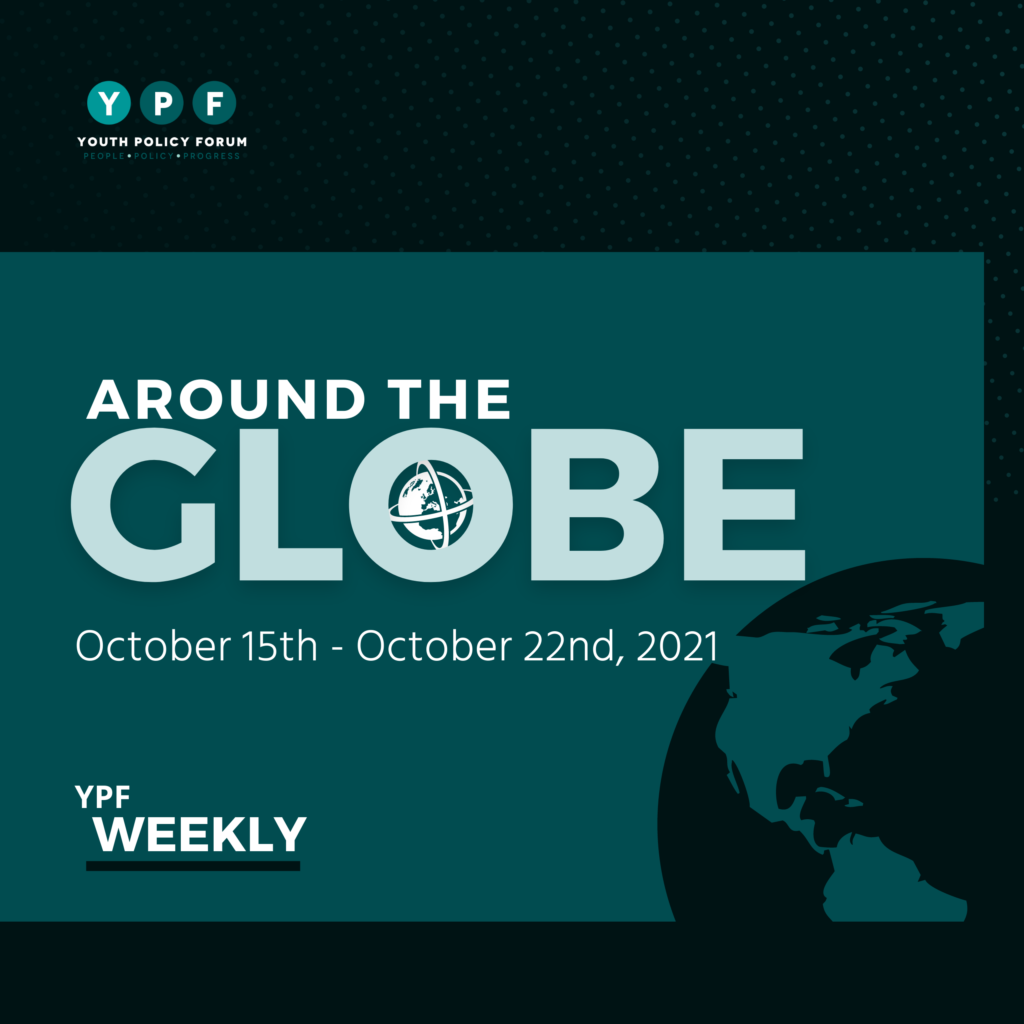Timeframe: October 15th – October 22nd, 2021
To read the Bangla version, click here
Contributors:
Maisha Maliha, Mansib Khan, Musarrat Sarwar Chowdhury, Sabyasachi Karmaker, Samia Tahsin Hoque, and Farhan Uddin Ahmed.
1. Economics & Business
Facebook Plans to Rebrand Company With New Name
According to The Verge, Facebook Inc., which is facing heavy criticism over its business practices, is going to rebrand with a new identity that focuses on the metaverse. Mark Zuckerberg, the company’s CEO, is set to speak about the name change at the company’s Connect conference on Oct. 28. The original Facebook app and service may remain unchanged in their branding, positioned under a parent company that counts other billion-user brands like Instagram and WhatsApp in its portfolio.
Source: The Verge
UK strikes trade deal with New Zealand – but it may add nothing to GDP
Britain has struck a trade deal with New Zealand, a key ally, as ministers hope to stem the country’s reliance on China – but the agreement is expected to add no value to the UK’s gross domestic product. Despite the Department for International Trade heralding the deal as a “groundbreaking” achievement that was a “vital part” of Boris Johnson’s commitment to leveling up, the prime minister has been accused of selling out British farmers. Tariffs as high as 10% are set to be removed on a range of UK goods, including clothes, buses, ships, and bulldozers. The price of New Zealand-produced sauvignon blanc, manuka honey, and kiwifruit should dip after 16 months of talks.
Source: The Guardian
Supply Shock: Post-covid recovery falters amidst shortages of commodities and fuel across major trading economies
The vulnerability of the global supply chain showed up right when economies started to open up, while container shortages plague exporting nations. A just-in-time (JIT) manufacturing process, which reduces costs, also hurts resilience as shown across different economies. China finds itself short of coal and paper, hurting most exports right when the US Christmas season starts up where ports are clogged and toys are harder to find. Meanwhile, the global chip shortage means that cars and computers are out of stock. On the other hand, a Brazil drought has hit coffee supplies while Nigeria is short of cooking gas. Finally, Lebanon, a crisis-hit economy, finds itself short of almost everything including water and medicines as the UN warns of a humanitarian crisis.
Source: BBC
2. Significant Corona Update
Pyrrhic Victory: India administers the billionth vaccine shot while the WHO warns the pandemic to persist till 2022
Prime Minister Modi has scored a belated win as India administers more than a billion shots while fully vaccinating 30% of its population. Modi’s picture is on every Indian vaccine certificate, and the BJP is planning a turnaround on its disastrous PR coup from earlier this year when it claimed India overcame covid right before the third wave. On the other hand, the global health body has warned that the slow pace of vaccine rollout in developing countries means that covid will remain the biggest health issue even in 2022. Meanwhile, Moderna and Pfizer plan to rollout booster shots after FDA approval even though the developing countries claim that there are not enough vaccine shots to go around.
Source: BBC
3. Science & Technology
Apple announces New MacBook Pros, processors, AirPods 3, and more in “Unleashed” event
Apple CEO Tim Cook opened the company’s special Unleashed presentation to announce a new Apple Music plan, new MacBook Pro models, new M1 Pro and M1 Max processors, and new Home Pod Mini colors in time for the holidays.
Source: Digital Trends
4. RMG/ Agriculture
Sri Lanka reverses organic farming drive as tea suffers
Sri Lanka has backed down from its ambitious plans to become the world’s first completely organic farming nation, reversing a ban on imports of chemical fertilizer.
President Gotabaya Rajapaksa had imposed a total ban on agrochemicals in May, saying he wanted to make Sri Lankan farming 100 percent organic.
Source: Al Jazeera
5. Environment
Floods, landslides kill more than 150 in India and Nepal
More than 150 people have died in India and Nepal as a result of severe flooding and disastrous landslides that have swept away roads and buildings, with dozens more still missing. In the northern Indian state of Uttarakhand, 46 people have died in recent days, with 11 more still missing. In Kerala in the south, the death toll had hit 39 there. At least 30 of those in Uttarakhand were killed in seven distinct incidents in the Nainital region early on Tuesday, after cloudbursts – an ultra-intense downpour of rain – triggered a series of landslides and damaged multiple structures. Another landslide in the northern Almora district killed five people after huge rocks and a wall of mud demolished and engulfed their home. On Monday, at least six more people were killed in two remote regions of the Himalayan state.
Source: Al Jazeera
8. Expert Opinion
Can America Cope with Demographic Decline?- Nicholas Eberstadt
In theory, it should be perfectly possible for a modern society not only to maintain prosperity but to increase it steadily in the face of pervasive population aging and demographic stagnation or depopulation. Whether the United States can in practice continue to flourish in the face of such trends is another question.
Source: National Review
Disclaimer: The information provided here is obtained solely from the third parties mentioned above. Youth Policy Forum (YPF) is not responsible for any misinformation or misrepresentation.
